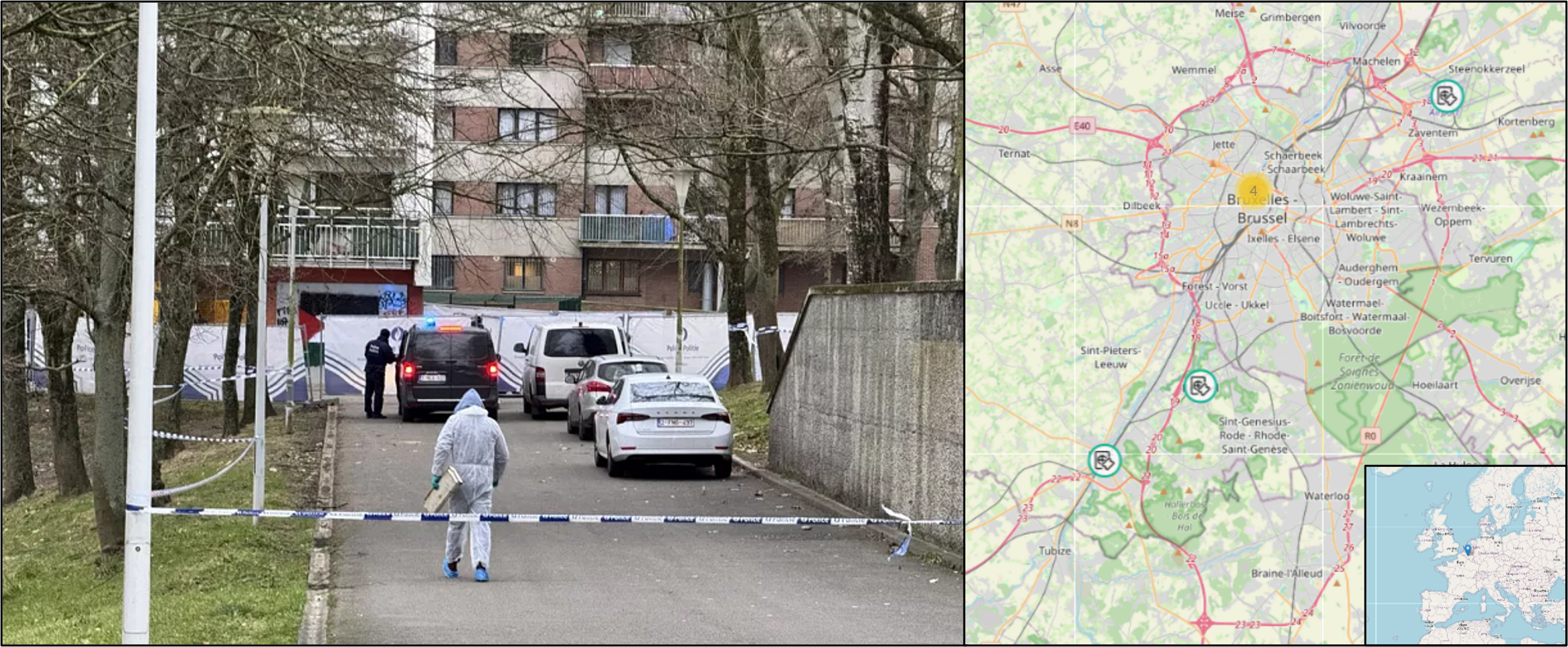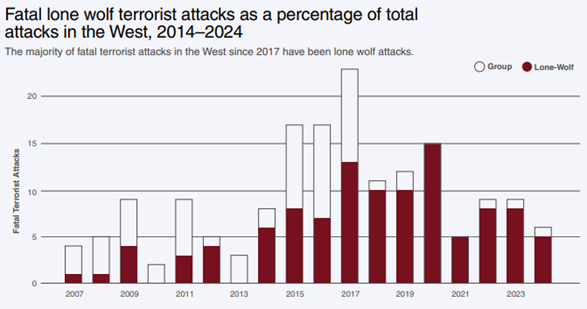| Reported: August 2025 | Location: Brussels, Belgium |
Event.
In early August 2025, seven shootings occurred in Brussels over one week, elevating the year’s total to 57 shooting incidents, many tied to drug-related crime. This latest spate of violence resulted in at least two fatalities and eight injuries.

Figure. Police work after a shooting incident in Brussels, Euronews. Map of recent security events in Belgium (Source: Neptune’s TRM App)
Comment. The violent crime escalation in Brussels has tallied 57 shootings in 2025 through to mid-August, with over 20 incidents since summer’s onset. Primarily propelled by drug trafficking feuds, official data reveals that roughly 66% of these shootings connect to gang turf battles, frequently entailing firearms, stabbings, and grenade assaults, where culprits evade capture – under 10% apprehended from 2024 cases, underscoring law enforcement hurdles. This uptick trails a peak of 92 shootings in 2024, a 48% rise from 62 in 2023, inflicting nine deaths and 48 injuries that year, ranking Brussels in Europe’s top three for gun violence beside Marseille and Naples, and fuelling the capital’s second-highest EU homicide rate at 2.8 per 100,000 residents.
Belgium’s pivotal position in the European drug trade underpins this, with the Port of Antwerp as the continent’s chief cocaine portal; seizures plummeted to 44 tonnes in 2024 from 116 tonnes in 2023, yet the first half of 2025 intercepted 16.7 tonnes across 82 operations – a jump from 58 in H1 2024 – with average consignment sizes contracting to 204 kilograms from 359 kilograms amid intensified customs vigilance, as seen in an early August, 73-kilogram haul and a broader shift to fragmented, recurrent shipments bolstered by a 2.5% container volume growth.
However, historically, Brussels contends with a separate terrorism threat, including the 2014 Jewish Museum shooting, where a lone gunman killed four people in an antisemitic attack linked to ISIS; the 2016 Brussels bombings that killed 32 civilians and wounded over 300; the 2018 Liège stabbing and shooting that claimed three lives, including two police officers, perpetrated by a radicalised lone assailant; the 2022 Brussels stabbing of a police officer by an Islamist extremist, resulting in one death and one injury; and the October 2023 Brussels terrorist shooting, where a lone gunman killed two Swedish nationals. The link here, lone-wolf attackers who currently account for 93% of fatal attacks in the West. Of particular concern is the unpredictability of the bespoke and blended ideology and the susceptibility to outside influence – ergo Threat Countries.
Group vs Lone Wolf attacks percentage 2007-2024 (Source: OJP)
The Belgium national terrorism threat level remains steadfast at ‘serious’ (Level 3), flagging potential imminent strikes from homegrown extremists, absent substantial drug-terror overlaps per EU analyses. Nonetheless, the prevailing gun violence derives from criminal drivers rather than terrorism.
Looking wider, parallel drug-driven violence besets other European ports: Marseille logged over 50 narcotics-tied homicides in 2024, Rotterdam seized 180 tonnes of cocaine from 2019-2024, and Naples noted a 20% organised crime upsurge in the same period, aiding EU-wide illicit drug hauls exceeding 1,826 tonnes from 2019 to mid-2024, 68% via seaports and emphasising transnational syndicate resilience.
Assessment. Political impasse exacerbates the predicament in Belgium. Brussels, without a functional regional government since June 2024, restricting available resources – merely 30 extra police officers mobilised despite pleas – and deferred overhauls like the 2027 six-zone police fusion, endowed with €55 million over five years to seal the jurisdictional breaches gangs exploit. This administrative void, paired with stagnant law enforcement funding at €1.2 billion yearly since 2022, cultivates an environment where violent crime infiltrates communal realms, escalating urban security in a country that hosts pivotal international entities like the EU and NATO.
Organisations dispatching personnel to urban centres worldwide should consider their travel risk management frameworks to counter rising threats from organised crime and terrorism related collateral damage, acknowledging that even traditionally stable locations now confront amplified security challenges. Contact Neptune P2P Group, if you require any further assistance.

